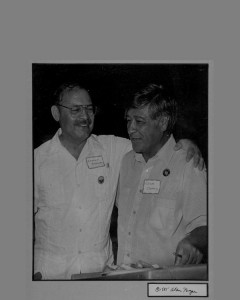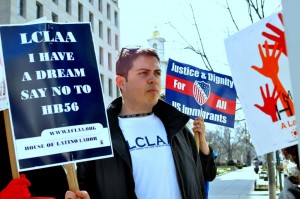They might be giants
|
Teaching and Learning and Caring Blog
EL PASO – No, not the New York/New Jersey football team, the 1982 alternative rock band, or the 1971 George C. Scott movie. Even better, they are civil rights heroes among us, standing up and moving for what they believe in. March 31 was César Chavez day. A year ago on this day, I marched in honor of César with Erasmo and Sally Andrade, both long-time advocates of social justice. Erasmo died March 30, 2012.

